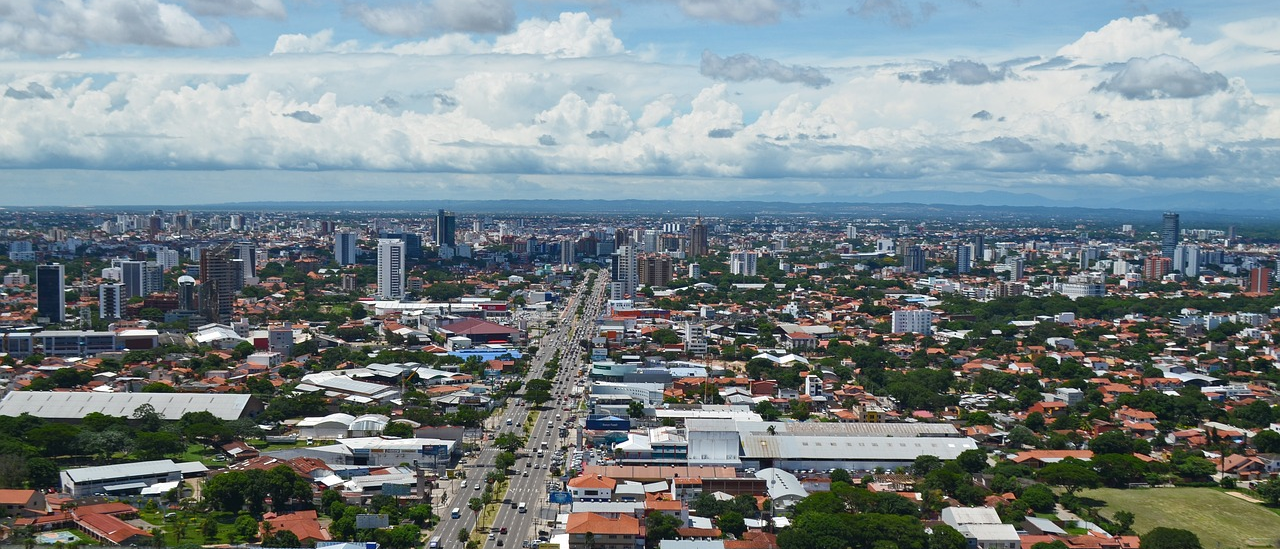
Bolivia’s eastern lowland city of Santa Cruz has been rocked by roadblocks and street clashes since an indefinite paro (civil strike) was called by right-wing opposition groups Oct. 22. With the open support Santa Cruz departmental governor Fernando Camacho, strikers are demanding that a new census be held next year rather than in 2024, as is currently scheduled. The last census was in 2012, and the region’s population has swelled with an influx of migrants since then. At issue is greater funding for the department, and more slated congressional seats ahead of the 2025 elections.
José Ernesto Serrate, president of the Civic Provincial Committees, is rejecting proposed assurances from the leftist government of President Luis Arce that post-census reapportioning could take place in time for the elections. Camacho has formally accepted this deal, but has stopped short of calling for an end to the paro. The opposition’s militant wing, the Cruceñista Youth Movement, has repeatedly engaged in brawls both with the security forces and supporters of the ruling Movement Toward Socialism (MAS). Cruceñista and MAS adherents have hurled dynamite at each other; four have been killed in the unrest and scores wounded. (AFP, ANF, Agenzia Fides, Eju!, El Deber, Prensa Latina, La Patria)
Right-wing resentment against the central government is in large part driven by the designs of the region’s land barons to expand the agricultural frontier into the expansive terrains declared off-limits as protected areas, reserves for indigenous peoples, or the titled holdings of campesino communities. A boom in soy and beef for export is especially fueled by Chinese investment and market demand. (FT, Reuters) Ironically, this trade is now on hold thanks to the paro; days after the strike was declared last month, the central government imposed a suspension of all soy, beef and sugar exports, citing the risk of internal shortages. (InfoBae, BBC News)
Meanwhile, the regional forest fires that prompted the central government to declare a state of emergency in 2020 are once again devastating the eastern lowlands. Nearly 9,000 square kilometers (3,475 square miles) burned across Bolivia by mid-September, according to government figures—mostly in the heavily forested east. Damage has been reported to Otuquis National Park and Tucavaca Valley Municipal Wildlife Reserve, both in the Chiquitania zone of Santa Cruz department. Expansion of the agricultural frontier is a key driver of the annual cycle of wildfires. (Mongabay, WeAdapt)
COFCO International, China’s major soy importer, has just announced its commitment to making its supply chain free of deforestation and land conversion by 2030 in environmentally sensitive regions of South America, including the Amazon and Cerrado, both of which extend from Brazil into Bolivia’s east. (Reuters)
Photo: Pixabay





Bolivia protests called off after census deal
Protests to demand a new census were called off in Bolivia’s eastern city of Santa Cruz after weeks of unrest, as the country’s leftist government set to carry out a count in March 2024. The Constitution Committee of the Bolivian Chamber of Deputies approved on Nov. 25 Bill 005, which sets the new date of the Population and Housing Census. The measure still needs to be approved by the Senate. (AFP, TeleSur)
Bolivia: Santa Cruz protests back on after Camacho arrest
The governor of the eastern Bolivian department of Santa Cruz, Luis Fernando Camacho, was arrested by National Police Dec. 28 and taken to La Paz, where a court ordered him held in “preventive detention” for four months while he is investigated for crimes related to the uprising against Evo Morales in November 2019. Camacho’s detention has sparked new protests in Santa Cruz, with blockades of roads and airports across the department, and attacks on government buildings in the regional capital. (UN News, Indian Express)
Bolivia: coup regime minister gets prison in US
A former Bolivian interior minister was sentenced to nearly six years in US prison Jan. 4 for taking at least $532,000 in bribes to help a Florida company win a lucrative contract to sell tear-gas to his country’s government. Arturo Murillo pleaded guilty in October to a single count of conspiracy to commit money laundering following similar guilty pleas by his former chief of staff and three men tied to the Florida-based supplier of police and military equipment. Murillo, 58, was one of the most hardline cabinet members in the conservative government of interim president Jeanine Áñez that took power in November 2019. (AP)